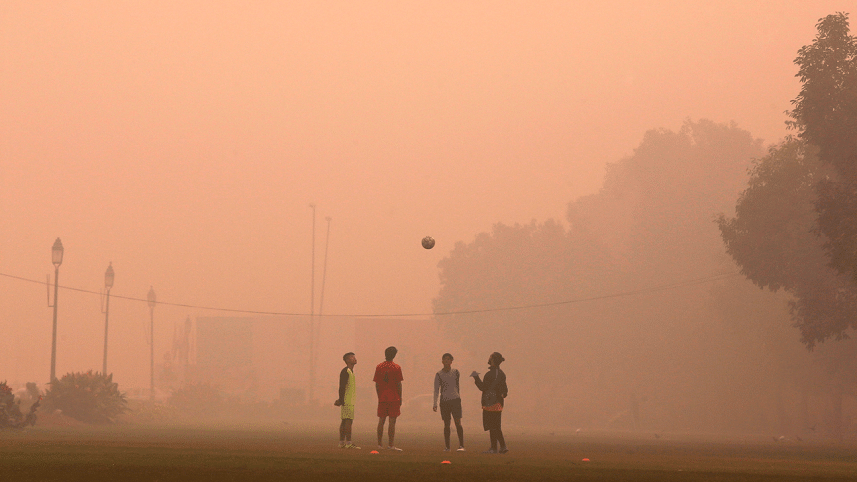Air Pollution: Delhi schools to stay closed

Schools in the Indian capital city will remain closed for three more days as Delhi battles its worst smog condition in 17 years.
Delhi Chief Minister Arvind Kejriwal said yesterday that in view of serious air pollution his government would discuss with the federal authorities about the possibility of engineering artificial rain to combat the situation.
Kejriwal also hinted the possibility of the return of restrictions on cars on Delhi roads. Meanwhile, all constructions and demolitions will be banned for five days, water will be sprinkled on roads and strict actions will be taken against the burning of trash.
He was addressing an emergency meeting of his cabinet.
Meanwhile, visibility in Delhi dropped to a distance of 200 meters due to smog, the worst in 17 years as hundreds of people, including children, staged a protest here demanding that the government take effective initiatives to curb the severe air pollution situation. The protest, organised by various citizen's group of Delhi was joined by celebrities including actress Nafisa Ali.
Calling Delhi a "gas chamber," Kejriwal has sought the federal government's intervention to help control the latest smog crisis that has enveloped the city since Diwali on October 30.
For a city considered one of the world's most polluted, the national capital has hit a new low as data shows the pollution this year is the worst in almost two decades.
The level of PM 2.5 - tiny particles that can clog the lungs and worsen heart ailments - is close to 700 micrograms per cubic metre, 12 times above the government norm and 70 times over the one advocated by the World Health Organisation.
Cases of severe breathlessness, asthma and allergy have risen sharply in Delhi. Doctors and experts say besides the spike in fresh cases, health complications have aggravated in people already suffering from asthma, allergy or other related ailments.
"Earlier 15-20 per cent of pollution-related ailment cases were reported at our hospital. This has now gone up by 60 percent. The most common problem is related to respiration and also a rather large number of cases of severe breathlessness, coughing and sneezing and bronchiolitis due to the smog," says SP Byotra, senior consultant and chairman of the department of medicine at Sir Ganga Ram Hospital.
The federal government has termed it an "emergency situation" and called a meeting of environment ministers of all neighbouring states tomorrow to curb paddy stubble burning by farmers.




 For all latest news, follow The Daily Star's Google News channel.
For all latest news, follow The Daily Star's Google News channel.
Comments